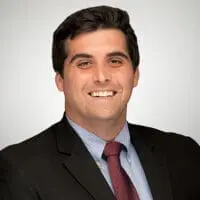Publication
House Small Business Committee Proposes Legislation to End Self-Certification for SDVOSB
by Brett W. Johnson and Michael A. Calvanico
On November 27, 2018, the House Committee on Small Business introduced House Resolution 7169, the proposed Verification Alignment and Service-disabled Business Adjustment (VA-SBA) Act.1 The purpose of this new legislation is to facilitate the transfer of responsibility for verifying small business concerns owned and controlled by veterans to the Small Business Administration (SBA). While this proposed legislation will serve to consolidate the separate SBA and U.S. Department of Veterans Affairs (VA) certification standards, it will also put an end to the current SBA policy of self-certification and will require many small and large businesses to revise policies, procedures, and certification programs.
Currently, the SBA certifies small businesses that participate in most federal contracting preference programs. However, Service-Disabled Veteran-Owned Small Businesses (SDVOSB) are a rare exception. While SDVOSB must go through a burdensome verification process with the VA to qualify for VA contracts, they are uniquely allowed to also self-certify with the SBA to obtain contracts from all other federal government agencies. The VA-SBA Act would require that the SBA implement a certification process for all SDVOSB applications, as it does for small businesses from all other socioeconomic preference programs.
Bringing these two distinct certification systems together may ultimately lead to a more simplified process for businesses and the government agencies. But, it is important for veterans currently engaged in government contracting to understand the proposed changes to ensure maintaining certification.
First, the SBA would oversee all SDVOSB certification. The VA Center for Verification and Evaluation will be abolished, and all records will be transferred to the SBA to maintain the new certification program.
Second, the new certification requirement would not kick in until two years after the date of the bill’s enactment. However, the SBA and VA are given the discretion to extend the date for enactment for as long as they wish.
Third, contractors that are currently self-certified SDVOSB would have a one-year grace period to file an application for certification in addition to the two-year enactment period. If an application is made within the one-year grace period, the SDVOSB can continue to rely on their self-certification until the SBA makes a determination on the application. If no application is made, self-certified SDVOSB will simply lose their certification at the end of the one-year grace-period.
While this legislation is only a proposal, the enthusiastic support from both the House Committee on Small Business, and Veterans’ Affairs chairmen2 indicate that some form of consolidated certification program will likely pass.
It is important for businesses to understand the impact of the new legislation and eventual regulations. Under the recent SBA regulatory changes, very few firms engaged legislators or commented on the proposed regulations – despite the significant impact on business operations and the certification process. Therefore, veteran firms may want to engage in the process to shape legislation at this formative stage.
In addition, businesses should consider taking this opportunity to prepare for the possibility of an end to self-certification. This is especially the case in light of other SBA regulations and size determinations that have limited the ability of minority shareholders to exercise “negative control” over businesses to protect financial interests.
Footnotes
-
The text of the proposed legislation is available at https://www.congress.gov/bill/115th-congress/house-bill/7169/text.
-
See Chairman Cabot and House Committee on Veterans’ Affairs Chairman Roe Introduce the VA-SBA Act, Small Business Committee (Nov. 27, 2018), https://smallbusiness.house.gov/news/documentsingle.aspx?DocumentID=401221.
About Snell & Wilmer
Founded in 1938, Snell & Wilmer is a full-service business law firm with more than 500 attorneys practicing in 17 locations throughout the United States and in Mexico, including Los Angeles, Orange County, Palo Alto and San Diego, California; Phoenix and Tucson, Arizona; Denver, Colorado; Washington, D.C.; Boise, Idaho; Las Vegas and Reno, Nevada; Albuquerque, New Mexico; Portland, Oregon; Dallas, Texas; Salt Lake City, Utah; Seattle, Washington; and Los Cabos, Mexico. The firm represents clients ranging from large, publicly traded corporations to small businesses, individuals and entrepreneurs. For more information, visit swlaw.com.


